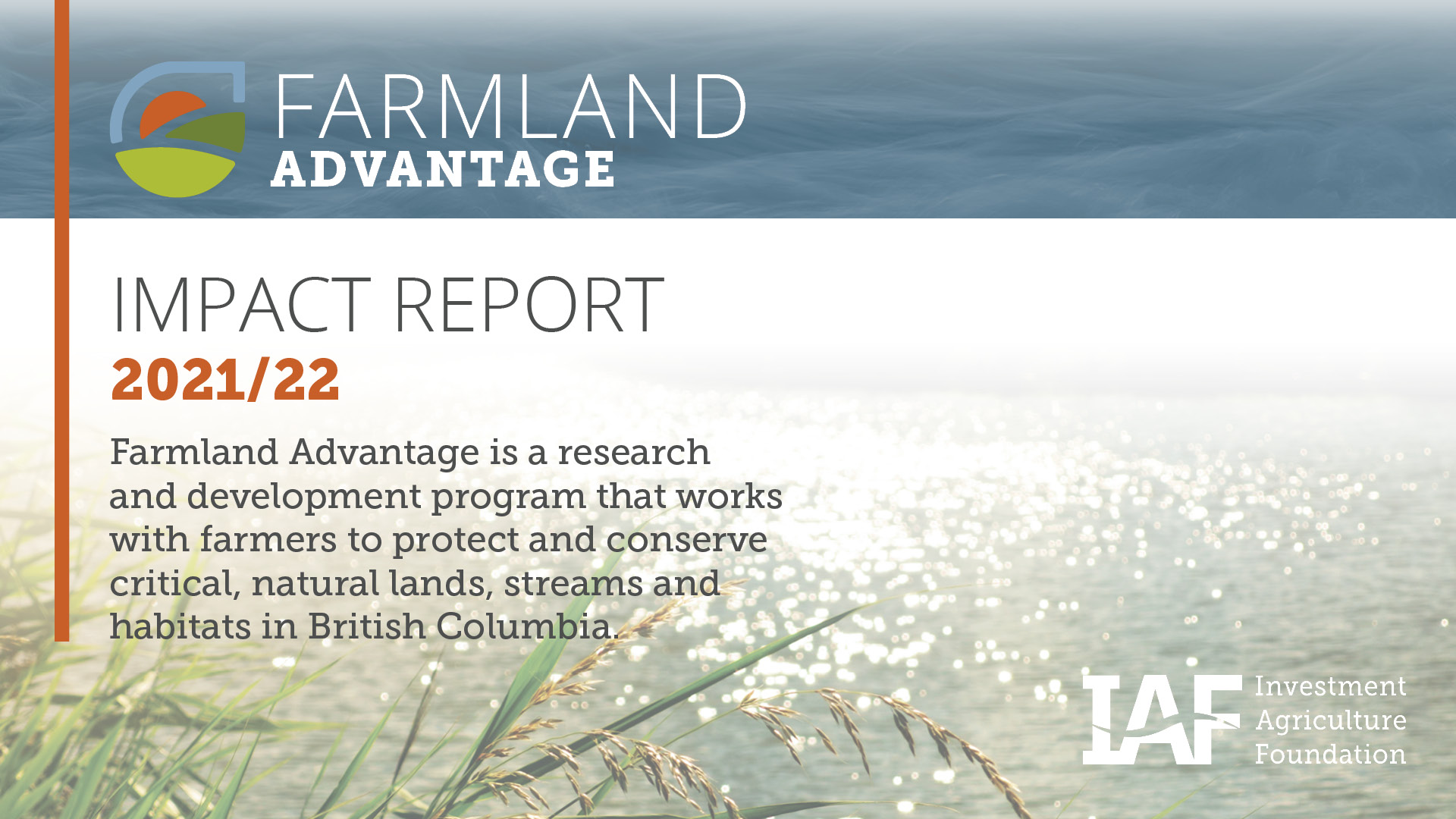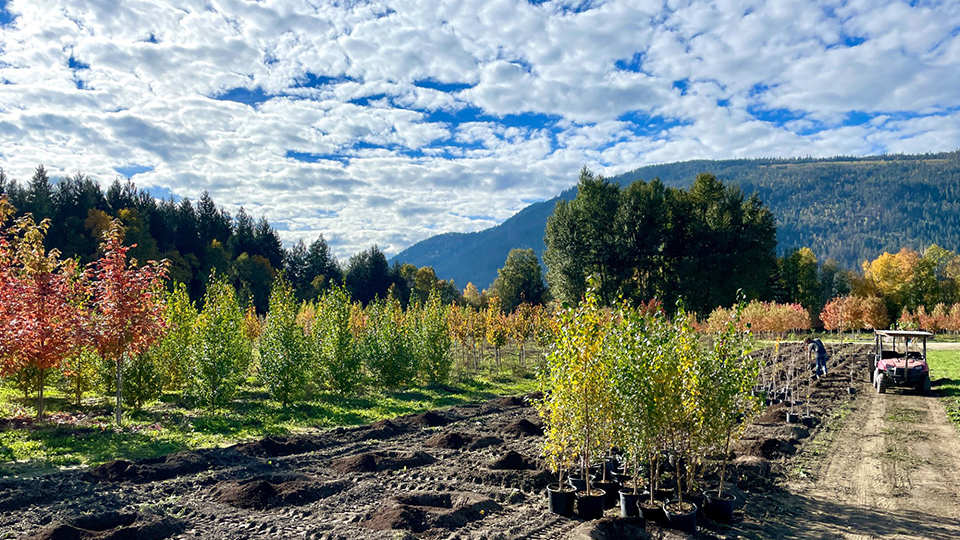
British Columbia’s farmers and ranchers work closely with the land, and their success depends on good stewardship and environmental practices. Identifying environmental impacts and the best practices to manage them requires access to funding for research, program development and evaluation.
Since 2001, the Investment Agriculture Foundation has delivered funding to four major initiatives aimed at addressing environmental and wildlife concerns associated with agriculture:
- Agriculture Environment Partnership Initiative (AEPI)
- Agriculture Environment Stewardship Initiative (AESI)
- Agriculture Environment Wildlife Fund (AEWF)
- Agriculture Environment Initiate (AEI)
“A big part of the success of agri-environmental funding is that it supports real solutions to environmental issues, and demonstrates to the public that agriculture is engaged in addressing these problems, not just ignoring them,” says Greg Norton, who farms in the Okanagan and chairs the BCAC agriculture environment committee. Norton has also chaired the industry committee that reviews applications for the past 11 years.
Funded by federal and provincial government contributions delivered through the Investment Agriculture Foundation, these programs have always relied on industry input from a committee of producers representing different commodities and regions of the province.
“A lot of the work that has been funded over the years has launched ideas that have become ongoing industry-supported programs, like the Obsolete Pesticide Program and Starling Control Program, or provided valuable reference information that is still being used by farmers,” he adds.
Over the past 15 years, agri-environmental programs have provided funding to resolve wildlife and environmental issues facing agriculture at local and provincial scales. In total, over $13 million in federal and provincial funding has been invested and 240 projects completed.
Some of the most significant outcomes of the projects have been the partnerships and relationships that have developed. Agricultural producers, associations, environmental groups, private industry, post-secondary institutions, researchers, and all levels of local and provincial government have been involved in this important work.
Not only have projects created connections at operational and community levels, but partners in these projects have stepped up and invested over $18 million in cash contributions, and another $3.62 million of value in-kind. These contributions bring the total value of the projects to an estimated $34.9 million. It is a testament to the value that farmers, producer organizations, community and environmental groups and different levels of government have put on developing solutions to help reduce agriculture’s impact on the environment.
As new risks and challenges emerge, funding like this ensures agriculture is able to respond. Recent projects have included research into new pests like the Spotted-wing Drosophila, addressing water protection in agricultural areas, and engaging the broader agri-food sector in discussions on packaging and waste-management.
“There is a lot of environmental work going on in agriculture right now that is very complimentary, and I think producers win when there’s that kind of linkage,” says Greg Norton, pointing to the Environmental Farm Plan/Beneficial Management Practice Program and the B.C. Agriculture & Food Climate Action Initiative. “Agriculture today is very aware of the importance of our relationship with the environment.”





